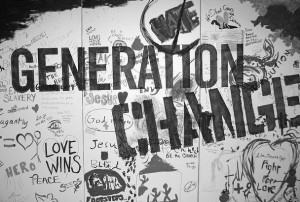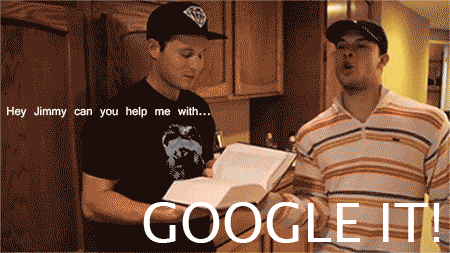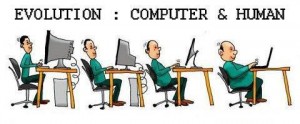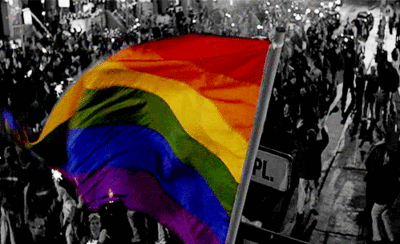
Lazy, unimaginative, or the lost generation are all concoctions that exemplify what this “short-cut” society is supposed to be. According to the Merriam dictionary, the detonation of short-cut is a “quicker or easier way to do something.” However, the connotation of short-cut, which is constructed by society, depicts that anyone who takes the “easier way” is lacking the basic fundamentals of life, or in other words is ignorant. To a society that’s main concentration is directed towards technology, it is tremendously offensive to categorize this society as being people that take short-cuts in life. The internet, Google, and even the calculator are all inventions that the public has adopted and use daily, but that where the paradox lies. These devices were created for people to utilize while simultaneously being juxtaposed to the notion that you’re lazy is you use these devices, no matter of it is more effective. Therefore, I will explore the concept that this generation, Generation Y or the millennials, are not in fact taking the easier routes in life, but are utilizing technology and allowing its resources to be beneficial.
Each generation imagines itself to be more intelligent than the one that went before it, and wiser than the one that comes after it,” stated by George Orwell, a prominent man, which depicts the relationship that each generation has as it coexists in this world. Since the progression of technology, millennials have been accused of being narcissistic due to the fact that technology shortens the process of a task and doesn’t require too much work. Narcissism is characterized as someone having an “extreme self-absorption, an exaggerated sense of self-importance, and a need for attention and admiration from others” (narcissism, 2014). Research has shown that those students in college from the 2000s to late 2010s have shown higher levels of narcissism than previous generations (Twenge, Konrath, Foster, Campbell, & Bushman, 2008). However, millennials being accused of being
narcissistic is what makes them so successful, (narc leads to success), and because millennials are already well acquainted with technology, most millennials work in an aspect that is associated with office work or business. In
fact, there are studies that report that it’s the business students that have higher levels of narcissism compared to other students in different fields (Daly, Westerman, & Bergman, 2010). Let be honest, no one invests all of their time and money into a business, unless they have extreme confidence in themselves. The people that are trying to develop their own business or work in an office spend 80 plus hours and have little time for a social life. Very few people do that for the fun, most do it because they have a high level of self-confidence in their success. Millennials have turned this belief that they are too self-absorbed into being a beneficial aspect. They have used their own narcissistic characteristics into progressing in the work industry, in spite of how they are perceived from other generational cohorts.
The older generations, mainly Baby Boomers, consider themselves to be judicious, while perceiving the younger generation to be ignorant. On the other hand, the younger generation believes the older generations to be loquacious about their time period, yet ignorant about the world they live in now. Most Baby Boomers deem millennials to be entitled and difficult to interact with. However, this same thinking once described Baby Boomers (Deal, Altman, & Rogelberg, 2010). Therefore, each generation shouldn’t have an ethnocentric approach to any new generations. A solution that can be adopted, constructed by Franz Boas, known as the Father of Anthropology, expounds on the notion that we, as a people, have to accept the beliefs and customs of someone else to be valid and justifiable, also known as cultural relativism. Each generation should realize that there will be trends and reformed cultural values across a period of time, thus the customs that are derived unto the pubescent is all they will know.
 In this society there is a natural force that drives Generation Y— the use of technology. In the past century, there have been lucrative and innovative devices that have improved the prosperity of America. But, prior to the 1920s, America wouldn’t have been able to fathom the concept of a computer, a phone, or an iPod, because their resources consisted of type writers and hand written notes. The generation before the Model T’s would have deemed the people of the 1920s to be lazy, similarly to the people of the 21st century. The students that are born in the 21st century have computers, iPhones, and iPods has their source for knowledge instead if using encyclopedias or atlases as the generation before them did. Ellen Gamerman stated in “Legalized Cheating” The Wall Street Journal how “old rules still reign in most places, but an increasing number of schools are adjusting them,” which clarifies the educational transition schools are exemplifying in response to the progression of technology (Gamerman, 2006). Every generation has had resources available that were utilized, so in this short-cut generation the accessible resources consist of technology. Thus, it is only plausible for the students to utilize what is present even if it deemed quicker by the people that are less technological savvy.
In this society there is a natural force that drives Generation Y— the use of technology. In the past century, there have been lucrative and innovative devices that have improved the prosperity of America. But, prior to the 1920s, America wouldn’t have been able to fathom the concept of a computer, a phone, or an iPod, because their resources consisted of type writers and hand written notes. The generation before the Model T’s would have deemed the people of the 1920s to be lazy, similarly to the people of the 21st century. The students that are born in the 21st century have computers, iPhones, and iPods has their source for knowledge instead if using encyclopedias or atlases as the generation before them did. Ellen Gamerman stated in “Legalized Cheating” The Wall Street Journal how “old rules still reign in most places, but an increasing number of schools are adjusting them,” which clarifies the educational transition schools are exemplifying in response to the progression of technology (Gamerman, 2006). Every generation has had resources available that were utilized, so in this short-cut generation the accessible resources consist of technology. Thus, it is only plausible for the students to utilize what is present even if it deemed quicker by the people that are less technological savvy.
There is no doubt that since the evolution of technology, that Generation Y has been accused of not having to work to get what they want. There is a belief that because technology because technology makes a tedious task shorter, that millennials can’t possibly have the capability of developing a good work ethic or be of value in a work setting. In fact, research has shown that there are no differences between the hours worked by Millennials and Generation Xers when they were at the same age (18-22; Deal, et al. 2010). Then, it was also discovered that Generation Xers worked more hours, in 2002, than Baby Boomers did at the same age, in 1977 (Deal, et al. 2010). Therefore, despite technology being more accessible to the millennial generation than the previous generations, there isn’t much difference between the generations, in the sense of how adequate one generation is over the other. Technology doesn’t reduce the chances of millennials being deemed valuable. Actually, since technology is being infused into businesses, such as communicating through email or using Power Point instead of a poster board, its millennials that have the upper hand. According to the Harvard Business Review, by 2016 millennials will make up almost half of all employees worldwide. Therefore, even if millennials are addicted to social media, Baby Boomers can’t even open an email attachment, which reduces the value that Baby Boomers have in the work place in comparison to millennials (Casserly, 2012). Considering that more business are moving towards being more technologically friendly. The usage of technology has not forced millennials to use the easy route. Technology is the most plausible route.
Statistics show that on average Google received about 2 trillion searches in 2013, and about 1 trillion the year prior; for students, “Google searches help find information in milliseconds,” and now that we live in the  “internet age” it’s understandable for a student to go to Google for clarification on a difficult topic (Grimes, 2008). For instance, when a person of this decade is enquiring about a subject, it is almost embedded into our heads to “go to Google” or “look it up in Google.” Very few people of the 21st century think, “Let me find the answer at my nearest library,” because it is not our primary source of knowledge — technology or the internet is. Technology is a convenient resource for millennials, regardless of the popular belief that it may hinder our success. In fact, due to Google being such a distinguished site it opens students to a global network, such as Cliff notes or Spark notes, designed to help and guide students through their troubles.
“internet age” it’s understandable for a student to go to Google for clarification on a difficult topic (Grimes, 2008). For instance, when a person of this decade is enquiring about a subject, it is almost embedded into our heads to “go to Google” or “look it up in Google.” Very few people of the 21st century think, “Let me find the answer at my nearest library,” because it is not our primary source of knowledge — technology or the internet is. Technology is a convenient resource for millennials, regardless of the popular belief that it may hinder our success. In fact, due to Google being such a distinguished site it opens students to a global network, such as Cliff notes or Spark notes, designed to help and guide students through their troubles.
Even though not all students use Cliff notes, Cliff notes can be extremely beneficial despite its negative controversy. Cliff notes is tool that should be used as a resource for understanding, not for content. For instance, if a student wanted to understand the meaning of “Dante’s Inferno,” by John Cardi, they would go to Cliff notes for summaries and important events that contribute to the overall message of the book. Agreeably, with a website that offers a myriad of information on one subject, it is inevitable for a student not to use Cliff notes as a means to getting out of doing the full work. Therefore, Cliff notes have not become an adaptable tool in education, despite its benefits of helping loss students. In the same fashion, calculators were once on the receiving end of a heated debate back in the 1970s because adults felt that students were short changed of their education because this machinery was able to give answers in seconds. Then, it wasn’t until 1994 that the SAT even allowed students to use these “new machines” during an exam after initially being banned (Gamerman, 2006). Now, seemingly all math or science classes require the usage of a calculator. Gradually calculators became acceptable just as cliff notes will be. This website is effective because it serves as a guide that keeps the knowledge rudimentary so that even a 5th grader can comprehend the message, which is considerably accommodating to students that can’t grasp the meaning or central idea of a piece of literature. In fact, Marilisa Sachteleben, a Literature teacher, stated that textbooks dehydrate and don’t offer a thorough job of helping students learn literature. But, it’s Cliff Notes, in her opinion that simplifies and extracts the essence of a piece of literature, not the textbook that students are forced to use (Sachteleben, 2009). Even though using Cliff notes doesn’t require any effort, it is very beneficial to the educational system and gradually using it will be second nature.
The implications associated with the term complacency and short-cut all embody a generation that does not exist. Generation Y makes use of the tools necessary to prosper because the world is all about what’s faster and better, not what’s slow and tedious. Cheating and taking short-cuts are not the word anymore; it’s exploiting the resources that are accessible to you. Millennials don’t take the less-traveled by route because the easy way is what’s offered. The beliefs that are associated to how millennials are only put into place by the people that never had the easier opportunities; therefore they would deem this generation to be lack lusters. Despite the popular opinion that technology makes millennials inadequate, it’s the millennials who are the future business owners. The students of this era are utilizers and use what is beneficial to their educational prosperity despite the controversy directed their way. The people of the 21st century will realize that students are not lackadaisical— they are trailblazers.
REFRENCES
Casserly, M. (2012). Millennials And Baby Boomers: At Odds Or Peas In A Pod? Forbes.com, 30
Daly, J. P., Westerman, J., & Bergman, J. (2010).Narcissism in Management Education. Academy of Management. Learning & Education, 9, 119-131.Deal, J., Altman, D., & Rogelberg, S. (2010). Millennials at Work: What
We Know and What We Need to Do (If Anything). Journal of Business & Psychology [serial online]. June 2010; 25(2): 191-199. Available from Business Source Complete, Ipswich, MA. Acessed April 19, 2014
Gamerman, E. (2006). Legalized Cheating. The Wall Street Journal. Retrieved from, http://online.wsj.com/news/articles/SB113779787647552415
Grimes, G. (2008). Spark notes Suck. The Antitoch High School Times 13 (2008): Print.
Jennifer, F. (2014, February 20). Why Narcissism Leads To Success. Thought Catalog. Retrieved April 29, 2014, from http://thoughtcatalog.com/jennifer-foster/2014/02/why-narcissism-leads-to-success/
narcissism. (2014). In Encyclopaedia Britannica. Retrieved from http://www.britannica.com/EBchecked/topic//
Sachteleben, M. (2009, December 1). Using Cliffnotes and Literature Study Guides in the Classroom. Yahoo Contributor Network. Retrieved April 29, 2014, from http://voices.yahoo.com/using-cliffnotes-literature-study-guides-the-4994802.html
Twenge, J., Konrath, S., Foster, J., Campbell, K., & Bushman, B. (2008). Egos Inflating Over Time: A Cross-Temporal Meta-Analysis Of The Narcissistic Personality Inventory. Journal of Personality, 76, 875-902. Retrieved April 29, 2014, from http://sitemaker.umich.edu/brad.bushman/files/TKFCB08A.pdf






